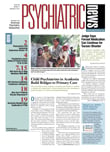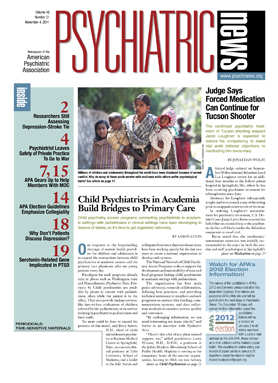To the surprise of no one who has attended medical school, the experience can induce distress in some students and psychiatric symptoms in a few. Yet insurance policies offered by many medical schools to their students often impose visit or dollar limits on mental health or substance abuse care and require cost sharing that may dissuade students from seeking needed care, according to a research letter published in the September 7 Journal of the American Medical Association.
Rachel Nardin, M.D., an assistant professor of neurology at Harvard Medical School and chief of neurology at Cambridge Health Alliance in Massachusetts, and colleagues compiled data from 115 of 129 U.S. medical schools during 2010. All the schools offered policies with coverage for outpatient mental health care, although six did not provide inpatient mental health or substance abuse coverage.
"Medical schools should consider improving student insurance coverage for mental health and substance use disorders," Nardin emphasized.
Between 29 percent and 43 percent of the 115 responding schools provided unlimited coverage of some combination of inpatient or outpatient care for mental health and/or substance abuse, they noted.
Median annual maximum dollar amounts of the policies offered to students varied from $3,000 for outpatient mental health treatment and $3,919 for outpatient substance abuse treatment to $62,500 for inpatient mental health treatment and $20,000 for inpatient substance abuse treatment.
"Medical students probably face no greater concerns about insurance than students in other professional schools," said pediatrician Samuel Parrish, M.D., senior associate dean for student affairs and admissions at Drexel University's College of Medicine in Philadelphia, in an interview with Psychiatric News.
Most schools are forced to strike a balance between the cost of premiums and the amount or quality of coverage they can offer at a given price, said Parrish, who was coauthor of a report on medical student mental health and services for the Association of American Medical Colleges.
However, even modest copayments can affect a medical student's willingness to seek treatment, said Parrish.
"Medical students aren't making a salary yet." he said. "In reality, they are poor people living on loans."
Parrish said he had never encountered a student who reached the maximum of the coverage provided, although one or two in each year's medical school class of 260 at Drexel apply for a leave of absence.
In a talk to incoming students each year, former APA President Michelle Riba, M.D., a clinical professor of psychiatry at the University of Michigan, discusses the stresses they will face and how to minimize the problems those stresses may cause; she also encourages the students to seek help when they feel overwhelmed.
At Michigan, medical students can turn to a psychiatrist on the staff whose job it is to help them specifically, she told Psychiatric News.
Nardin's survey covered insurance plans offered by medical schools, but Riba noted that some medical students may be insured through other plans. Some students under age 26 may still be covered by their parents' policies or may have other sources of insurance, which may be better or worse than the university plan.
Confidentiality is another concern beyond costs and coverage, said Riba. Some students worry that seeking help may affect later matters such as the cost of purchasing life insurance.
In some states, at least in the past, licensing bodies may have noted that a physician applicant had experienced a mental health problem while in medical school and required an evaluation by a clinician to determine that the problem would not affect the individual's ability to practice, said Riba.
Finally, noted Parrish, some psychiatric diagnoses frequently make their first appearance in early adulthood, which may account for service usage during college or medical school.
However, one major change in recent years is that professors and administrators at every level of higher education are seeing students who have received mental health services beginning in middle school.
Parrish sees that as a positive sign. "It shows that treatment works."

